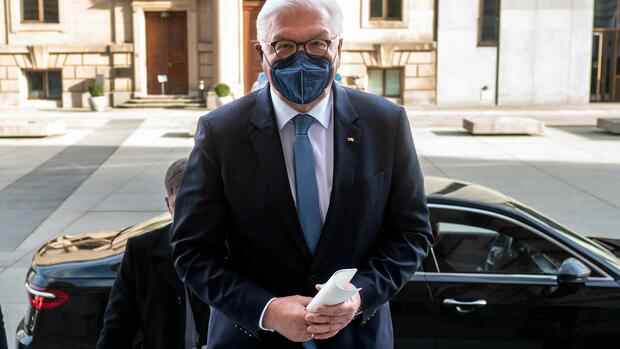Berlin When the Federal Assembly meets in Berlin this Sunday to elect a new head of state, the confirmation of the incumbent is certain. The 66-year-old was nominated by the traffic light parties SPD, Greens and FDP and by the CDU/CSU opposition. Together they have a large majority in the Federal Assembly. Steinmeier is only the fifth Federal President to stand for a second term. Horst Köhler last did this in 2009, but then resigned a year later.
The left is the doctor Gerhard Trabert (65) and the AfD the economist Max Otte (57), who is a member of the CDU. In addition, the Free Voters have nominated the physicist Stefanie Gebauer (41). However, all three have no chance given the majority situation.
Several parliamentary groups met on Saturday to prepare for the Federal Assembly. The SPD leadership called for Steinmeier to be elected, just as the Greens leadership had already done on Friday. “This re-election means the continuity of a very, very good administration,” said SPD Chairwoman Saskia Esken. The second party leader, Lars Klingbeil, emphasized that at this time a Federal President is needed “who is able to build bridges, who is able to bring people together and also to find a language that holds the country together and unites it”. That’s Steinmeier. According to dpa information, this was later also warmly received in the CDU/CSU parliamentary group and with much applause.
The parliamentary group leaders Dietmar Bartsch and Amira Mohamed Ali as well as the party leader Janine Wissler thanked their candidate Trabert for the willingness to run. Otte introduced himself to the AfD. According to a spokesman, the chairmen Alice Weidel and Tino Chrupalla emphasized that with him the AfD was offering a “conservative-liberal alternative” to Steinmeier.
Top jobs of the day
Find the best jobs now and
be notified by email.
From Chancellor’s Office to Head of State
Steinmeier headed the chancellery under Chancellor Gerhard Schröder (SPD) from 1999, before that he had been head of the state chancellery as prime minister in Hanover. He was foreign minister from 2005 to 2009 and again from 2013 to 2017. In the federal elections of 2009, he failed as SPD candidate for chancellor.
The Federal Assembly is the largest parliamentary body in Germany. Its only task is to elect the head of state every five years. It is made up of the members of the German Bundestag and an equal number of members who are delegated by the 16 state parliaments. Since the Bundestag currently has 736 members, the Federal Assembly consists of 1,472 electors – more than ever before.
SPD, Greens, FDP and CDU/CSU together make up 1223 of the 1472 members. The AfD has 151 and the left has 71 delegates. The Free Voters are represented by 18 electors, the South Schleswig Voters’ Association (SSW) by 2. There are also a few non-attached voters.
Because of the corona pandemic, this time the Federal Assembly will not meet in the plenary hall of the Reichstag building, but in the neighboring Paul-Löbe-Haus, where there is more space. There are numerous offices of MPs. There are also many meeting rooms that are now also used for the Federal Assembly in order to be able to keep distances.
All delegates must provide proof of a negative corona test in order to be able to take part in the Federal Assembly. For this purpose, a test center was set up in front of the Reichstag building, in front of which a long queue formed at times on Saturday.
